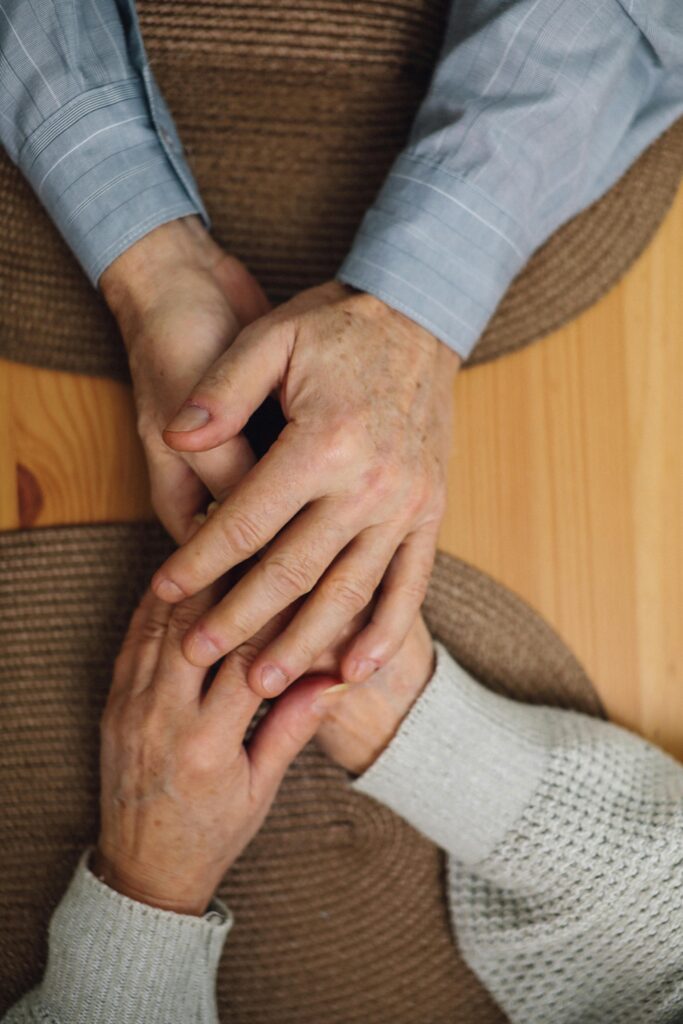Why “Checking In” Feeds OCD: The Hidden Dangers of Reassurance Seeking
November 12, 2024
If you’ve ever caught yourself asking the same question over and over again—hoping for just one more answer that will make you feel better—you’re probably familiar with reassurance seeking. We all do it from time to time. Whether it’s double-checking with a friend about plans or asking your partner if they’re really not mad at you. Seeking reassurance can feel comforting in the moment. But, if it becomes a habit, it can actually make anxiety worse in the long run.
I’ve been there, too, and trust me—it’s a hard habit to break. But once we understand why it happens and how it fuels OCD, we can start to take back the control.
In this post, we’ll break down what reassurance seeking is, how it plays a big role in OCD, and most importantly, how to stop it.

WHAT IS REASSURANCE SEEKING BEHAVIOR?
Reassurance seeking is when you ask for confirmation or validation, usually to reduce anxiety or doubt. For example, you might ask your partner, “Do you still love me?” over and over again, or you might keep Google symptoms to make sure that odd pain isn’t something serious. On the surface, it feels like a way to calm yourself down—almost like self-soothing.
But here’s the catch: instead of actually soothing yourself, you’re relying on external sources to feel better. And in the case of OCD, that “calm” doesn’t last for long.
OCD loves certainty, but life is full of uncertainties. That’s why reassurance seeking is such a powerful tool for OCD—it tricks us into thinking we’re solving the problem when really, we’re just fueling the fire.
Reassurance seeking isn’t always obvious. It can sneak into your everyday life in subtle ways. Here are some common examples:
- Asking for relationship reassurance: Constantly seeking relationship reassurance is incredibly common, which is why I’m mentioning it again. You might find yourself repeatedly asking your partner or friend, “Do you still love me?” or “Are we okay?”—even when nothing has actually changed.
- Health-related reassurance: Constantly Googling symptoms or asking someone if a mole or a headache is normal.
- Checking behaviors: Repeatedly checking if the door is locked, if the stove is off, or if the iron is unplugged.
- Moral or existential reassurance: “Am I a good person?” or “What if I did something terrible and I don’t remember?”
Each of these actions might bring a brief moment of relief, but it’s always temporary. The need for more reassurance will return—and often stronger than before.
WHY PEOPLE WITH OCD SEEK REASSURANCE (AND HOW IT FEEDS INTO THE CYCLE)
Reassurance seeking happens because OCD creates unbearable anxiety and doubt. People with OCD often feel stuck in a loop of “what if” thinking. The fear of the unknown can be so intense that you feel like you have to do something—anything—to get rid of it.
When you ask someone for reassurance, whether it’s about your health, relationships, or safety, you’re essentially trying to escape that uncertainty. You’re hoping that by getting an answer, your anxiety will go away. But here’s the thing: no amount of reassurance can ever fully satisfy OCD because it’s always searching for more doubt. The cycle of anxiety will just keep coming back, and you’ll need more and more reassurance to keep the anxiety at bay. It’s exhausting, and it takes up SO much mental energy that could be used for better things.

WHY REASSURANCE SEEKING DOESN’T WORK (AND MAKES OCD WORSE!)
The truth is, reassurance seeking doesn’t solve the problem—it only puts a temporary Band-Aid on it. You’re just teaching your brain that you need reassurance to feel okay, and not addressing the root cause of your anxiety. Which means the anxiety will keep coming back stronger every time.
OCD is all about intolerance of uncertainty. When you seek reassurance, you’re avoiding the very thing you need to learn to tolerate: not knowing for sure. The more you avoid uncertainty, the scarier it becomes, and the more your OCD tightens its grip. You end up trapped in a cycle of needing constant reassurance just to get through the day.
It’s a trap that so many people with OCD fall into, but the good news is, you can break free.
STRATEGIES TO BREAK THE CYCLE
If reassurance seeking has become a part of your life, don’t worry—there are ways to break the cycle. It’s not easy, and it takes practice, but over time, you can learn to manage the anxiety without needing constant reassurance.
Here are some strategies I’ve found helpful both in my own journey and with others I work with:
- Self-soothing for reassurance seeking: Instead of asking someone else or checking something to calm your anxiety, try soothing yourself. Take a deep breath, remind yourself that uncertainty is a part of life, and allow yourself to feel that discomfort without reacting to it.
- Lean into the uncertainty: This is a big one, and it’s hard, but so effective. When you feel the urge to seek reassurance, try to sit with the discomfort of not knowing for sure. Maybe you didn’t lock the door perfectly, maybe you did—learning to live with “maybe” is key to reducing OCD’s power.
- Limit your reassurance-seeking: If you tend to ask someone for reassurance or check things repeatedly, set limits. Tell yourself, “I’m only going to ask once,” or, “I’m going to check the door just one time.” Gradually reduce how often you seek reassurance.
- Focus on what you can control: Anxiety thrives on focusing on the uncontrollable. Instead of spiraling into endless what-ifs, focus on things you can do right now. Grounding exercises, mindfulness, or even distraction with an activity you enjoy can help you break out of the reassurance loop.
- Get support: If you’re struggling with breaking the reassurance cycle on your own, you’re not alone, and you don’t have to do it alone (I’d love to help).

ARE YOU READY TO STOP REASSURANCE SEEKING?
Breaking the cycle of reassurance seeking isn’t easy, but it’s definitely possible. The more you practice sitting with uncertainty, the more you’ll realize that you can handle it—and that you don’t need reassurance to feel okay. Remember, this is a journey, not a quick fix. Be patient with yourself, and know that every small step counts.
And, if you’re ready to dive deeper into these strategies and take back control over your OCD, I have plenty of resources to support you. From The OCD and Anxiety Recovery Blueprint to my free masterclass Stop the Spiral, these tools can guide you through tough moments and help you build the skills to manage OCD. You don’t have to do it all on your own—I’m here to support you every step of the way!
most popular episodes
Love my podcast?
Episode 112: Postpartum OCD and False Memory OCD
Imagine how in depth I can go in an online course. Instantly downloadable and game-changing. Take the next step towards an amazing life.